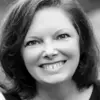ACC.17 Aims to Deliver Interactive, Personalized Learning Experiences to Diverse Cardiovascular Community
Policymakers from the FDA and CMS have been invited to participate in ACC.17, says Jeffrey T. Kuvin, MD, ACC.17 chair and chief of Cardiovascular Medicine at the Heart & Vascular Center of Dartmouth-Hitchcock Medical Center in Lebanon, N.H. “This year, we’ll be able to draw on local expertise, which also happens to be our nation’s expertise—people who can help us understand important, timely issues in cardiovascular medicine and in the world of medicine,” he says.
Speaking with Cardiovascular Business, Kuvin shares meeting insights and describes the educational experience he and ACC colleagues have in store for attendees.
What clinical highlights do you expect at ACC.17?
In terms of game-changing science, we have 23 late-breaking clinical trials. Each one has the potential to impact clinical practice. We also have 17 featured clinical research studies, which will be thought provoking and important. And more than 2,600 abstracts will be presented in oral, moderated poster or flat-board poster formats.
There also will be a four-hour mini-course, or intensive, each day. The topics focus on the development of teaching skills, healthcare equity and disparities, and palliative care. Each of these subjects crosses all cardiology disciplines. We’ve designed these for relatively small group learning, between 200 and 300 people, with huge emphasis on interactivity among participants.
Which clinical trial results will the cardiovascular community be especially excited to see?
I never pick favorites, but FOURIER (Primary Results of the Further Cardiovascular Outcomes Research with PCSK9 Inhibition in Subjects with Elevated Risk Trial) will be presented at the opening session, and this is the first time we will have outcomes data for PCSK9 inhibitors. This information will be critical to clinicians for treating hyperlipidemia and/or cardiovascular disease. SURTAVI (Transcatheter Aortic Valve Replacement [TAVR] with a Self-Expanding Bioprothesis Compared with Surgical Aortic Valve Replacement in Patients at Intermediate Surgical Risk: First Results) will provide more information with potential to impact coverage and reimbursement of TAVR in intermediate-risk patients. These are just two of many important studies that will be discussed at the meeting.
ACC.17 will have seven named lectures. Which do you recommend for those interested in the business of cardiovascular medicine?
One that will be especially instructive for practice administrators is the Bishop Lecture by Janet Wright, MD, who heads the Million Hearts campaign. Dr. Wright will discuss reducing cardiovascular morbidity and mortality and, to some degree, health disparities. The panel discussion following her talk will be illuminating as well.
Have you planned sessions to highlight trends for the next decade or more?
When thinking about trends, it’s helpful to look backward before thinking forward. Each of ACC.17’s 10 learning pathways will feature a year-in-review session, where a leader in that particular field will summarize what has occurred in the area in the past year and project the future. This will be followed by the presentation of key abstracts in the field.
You planned ACC.17 around four ideas?
For the past two years, we’ve focused on delivering what I call “the four I’s”: informative, interactive, innovative and interdisciplinary. They all support the success of the meeting, but I like to stress interactivity in educational sessions. The audience-response system and other interactivity tools will allow participants to engage in their own learning, which can only enhance the educational environment.
Interactivity is reflected in the meeting’s physical construct as well. The “lounge-and-learn” areas, which past attendees have praised, are designed to foster interactivity and networking. It’s critical for people to have the chance to talk to one another, meet with each other and continue conversations outside of sessions.
This year, we’re also going to offer, for the first time, a personalized skills center—a venue for attendees to focus on their own personalized learning, through simulation, EKG drill and practice, listening to heart songs and self-directed learning modules on computers. It’s really focused on the individual learner.
Another venue focused on interactivity is the Engage Theater, a casual environment for competitions, such as Jeopardy and contests with simulated cases or questions and answers.
Are the new learning venues aimed at individuals or teams?
Both. Some attendees will be at ACC.17 on their own, while others will focus on team-based education. We’ve planned the meeting to ensure that all sessions—educational and research—include aspects for the entire heart team. The sessions on valve therapies, for example, will address every aspect of the team approach. There also is a significant emphasis on programming for nonclinical members of the cardiovascular team, such as practice administrators, coding staff and C-suite executives.
There will be numerous venues for discussion of MACRA and MIPS. We’ve invited members of the Washington community to help us understand how healthcare is evolving. We’ll also have education on how to avoid, navigate and negotiate around malpractice; practical advice on mentoring within the care team; leadership; and various focuses on nonclinical strategies.
